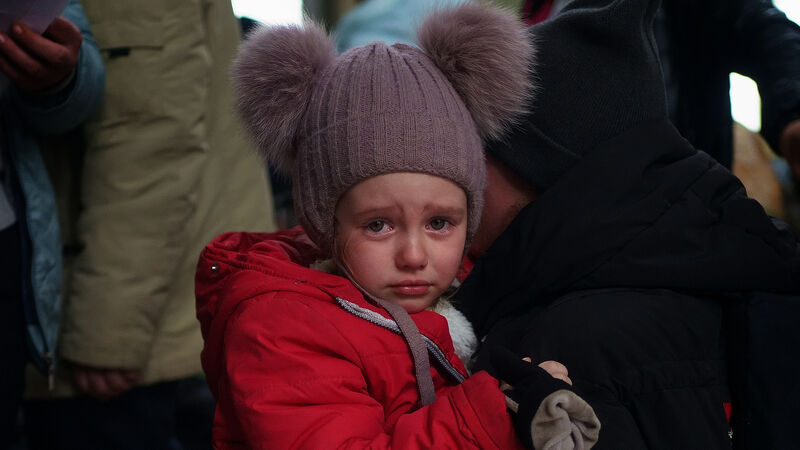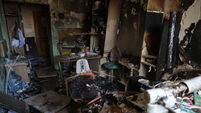Ukraine crisis can't let Government off the hook on direct provision promises

A young Ukrainian refugee cries on the shoulder of her mother in the entrance hall at Przemysl Glowny train station in Poland, after arriving by train from Ukraine to flee the Russian invasion. Picture date: Tuesday March 29, 2022.
The Government has admitted that it is now unlikely to meet its commitment to end the direct provision system by 2024.
This news is not surprising given the pressure the Department of Children, Equality, Disability, Integration and Youth is under to source accommodation.














